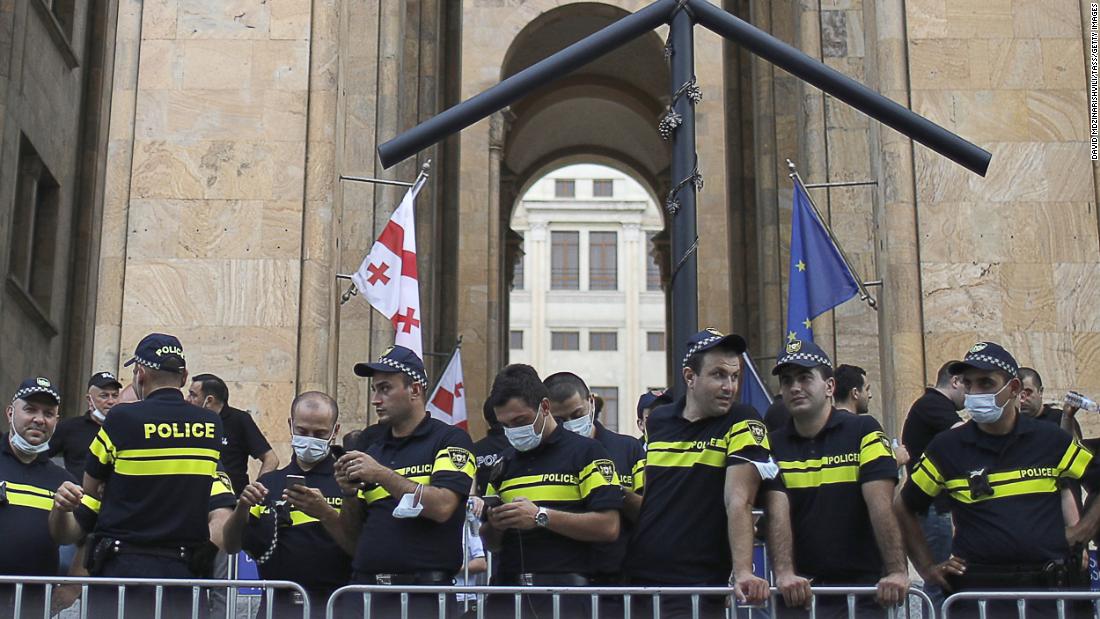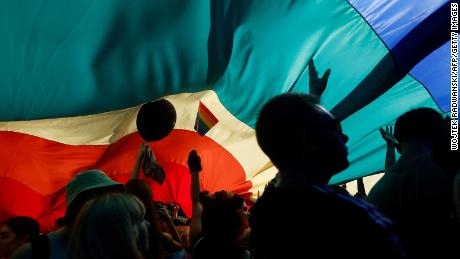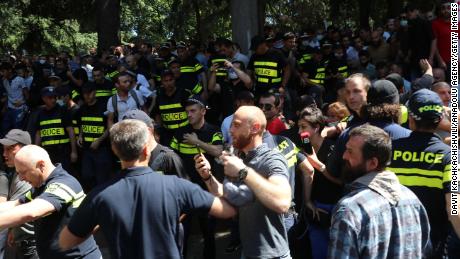Protesters were demanding Prime Minister Irakli Garibashvili resign following the death of 37-year-old Alexander Lashkarava. The cameraman was “found dead at home by his mother” Sunday, six days after he was severely beaten by demonstrators trying to block an LGBTQ pride event in Georgia’s capital, Tbilisi, his employer, TV Pirveli, reported.
Lashkarava suffered “multiple facial fractures” when he was attacked while covering counter-demonstrations in Tbilisi against a Pride event called March for Dignity with fellow journalist Miranda Bagaturia, TV Pirveli Commercial Director Nana Aburjanidze told CNN on Sunday.
The event was canceled when violent protesters stormed the offices of some LGBTQ campaign groups before the march started, Aburjanidze said.
Garibashvili responded to Lashkarava’s death by referring to the protesters as “anti-state and anti-church forces” who were politicizing the incident.
“It was yet another failed conspiracy against the State, masterminded by anti-state and anti-church forces, which failed and will never be successful in our country. We all saw that the tragedy of this person was attempted to be used for their own political agenda,” he said, according to the AFP news agency.
“An appropriate forensic examination is scheduled, at the initiative of the family of the deceased and at the request of the television company, an independent expert is involved in the process and all questions will be answered fully, in the shortest possible time,” he said.
Georgian President Salome Zourabichvili visited Lashkarava’s family Sunday and said the case must be investigated.
53 journalists attacked
TV Pirveli’s Aburjanidze said Lashkarava died after spending almost a week in hospital and having surgery.
“He was given the medical treatment to do at home. He visited our office Friday and said the pain was really bad. He was on air on a daytime talk show talking about the incident and demanding justice,” Aburjanidze said.
“He was too young to die. This is shocking, just unbearable. I don’t know the words that would describe the pain we’re going through right now,” she said.
Aburjanidze also alleged Lashkarava’s body “was taken away taken away by so called ‘experts’ without having the permission from the family.”
“They basically they kidnapped the body,” she said.
CNN has reached out to the Georgian police and the interior ministry for comment regarding these allegations but has not received a response.
The statement said counterdemonstrators “deliberately attacked the media representatives, subjected them to physical and verbal abuse, and deliberately destroyed their equipment to obstruct their journalistic activities.”
“Insufficient police forces did not take measures to protect the journalists,” the statement said, adding cases concerning the violation of journalists’ rights had “reached a critical level.”
Lashkarava’s death was also confirmed by Georgia’s Ministry of Internal Affairs, which said in a statement it had launched an investigation under Article 115 of the country’s criminal code.
“The investigation is in progress on the fact of unlawful interference with the journalist’s professional activities under the threats of violence, persecution under violence, or threat of violence and group violence, within the frames (sic) of which 4 individuals have already been detained,” the statement added.
Giorgi Tabagari, director of Tbilisi Pride, told CNN on Sunday: “The fifth of July was really, really a tragic day for Georgia’s democracy. I would say it was a day when the police and (the) system allowed this pogrom to happen in the streets of Tbilisi and didn’t do anything basically to stop the violence from happening.”
Tabagari said “things got so out of hand” on July 5 “we lost the life of the cameraman who was just doing his job.”
CNN’s Amy Woodyatt contributed to this report.





